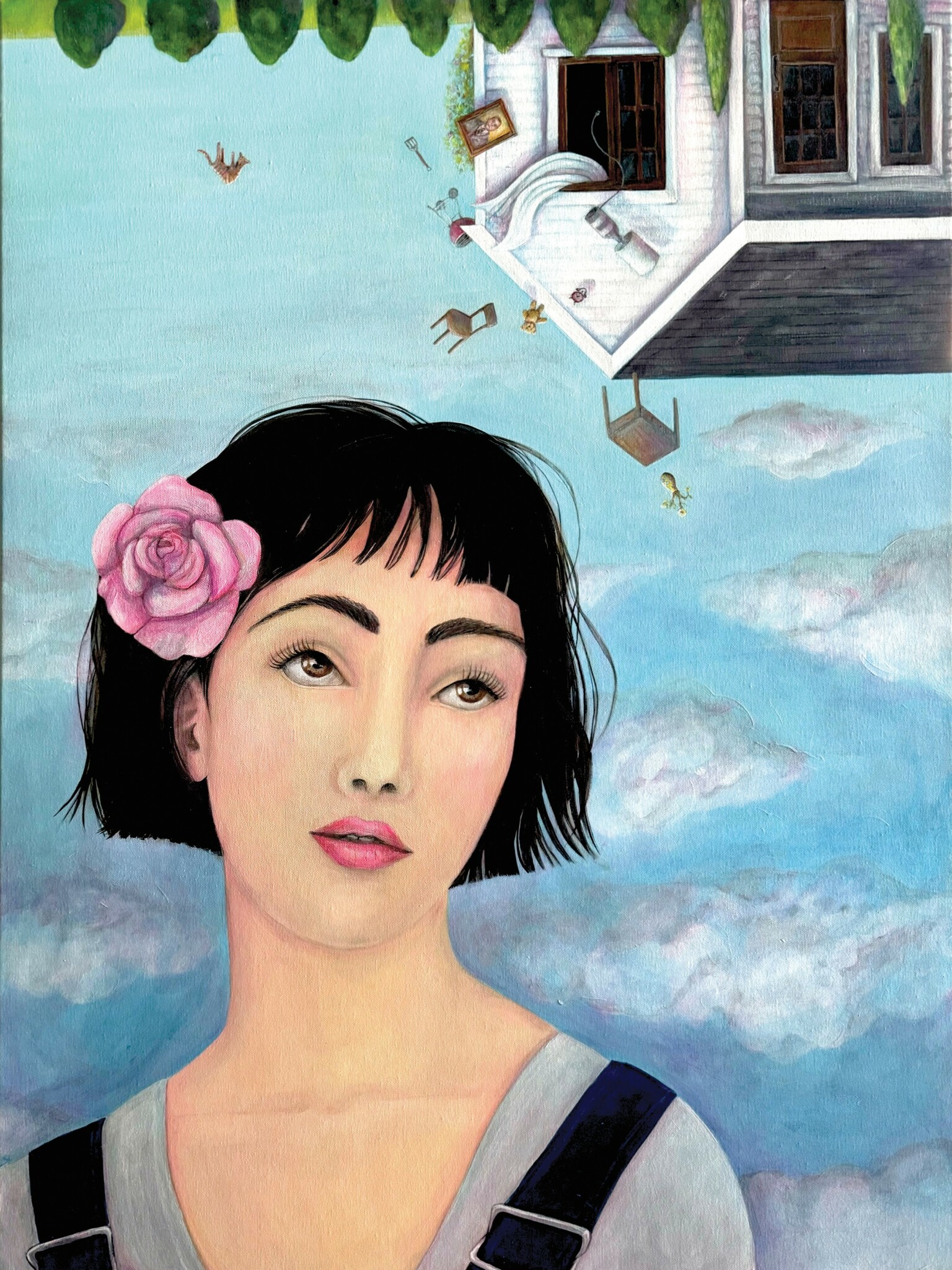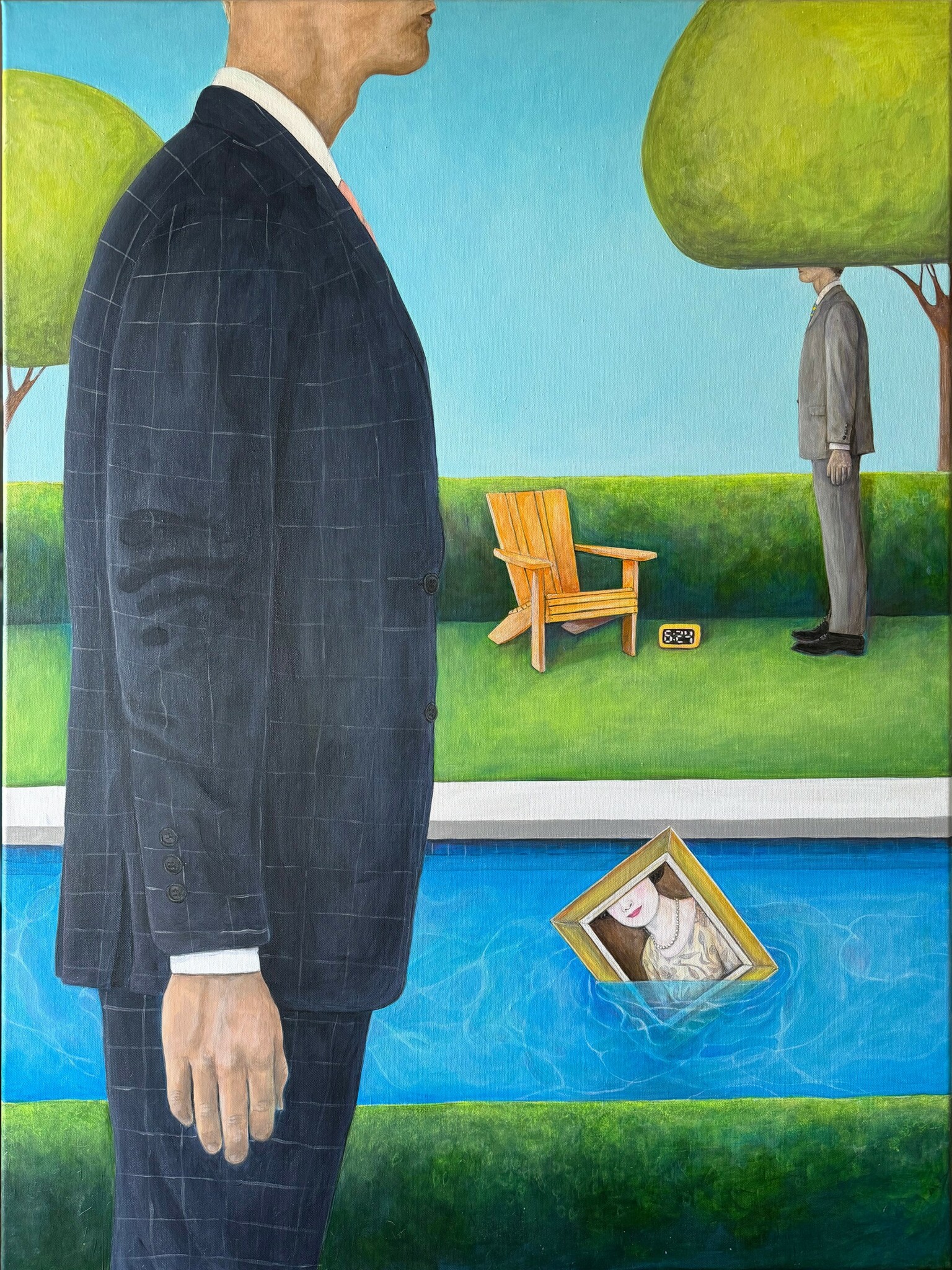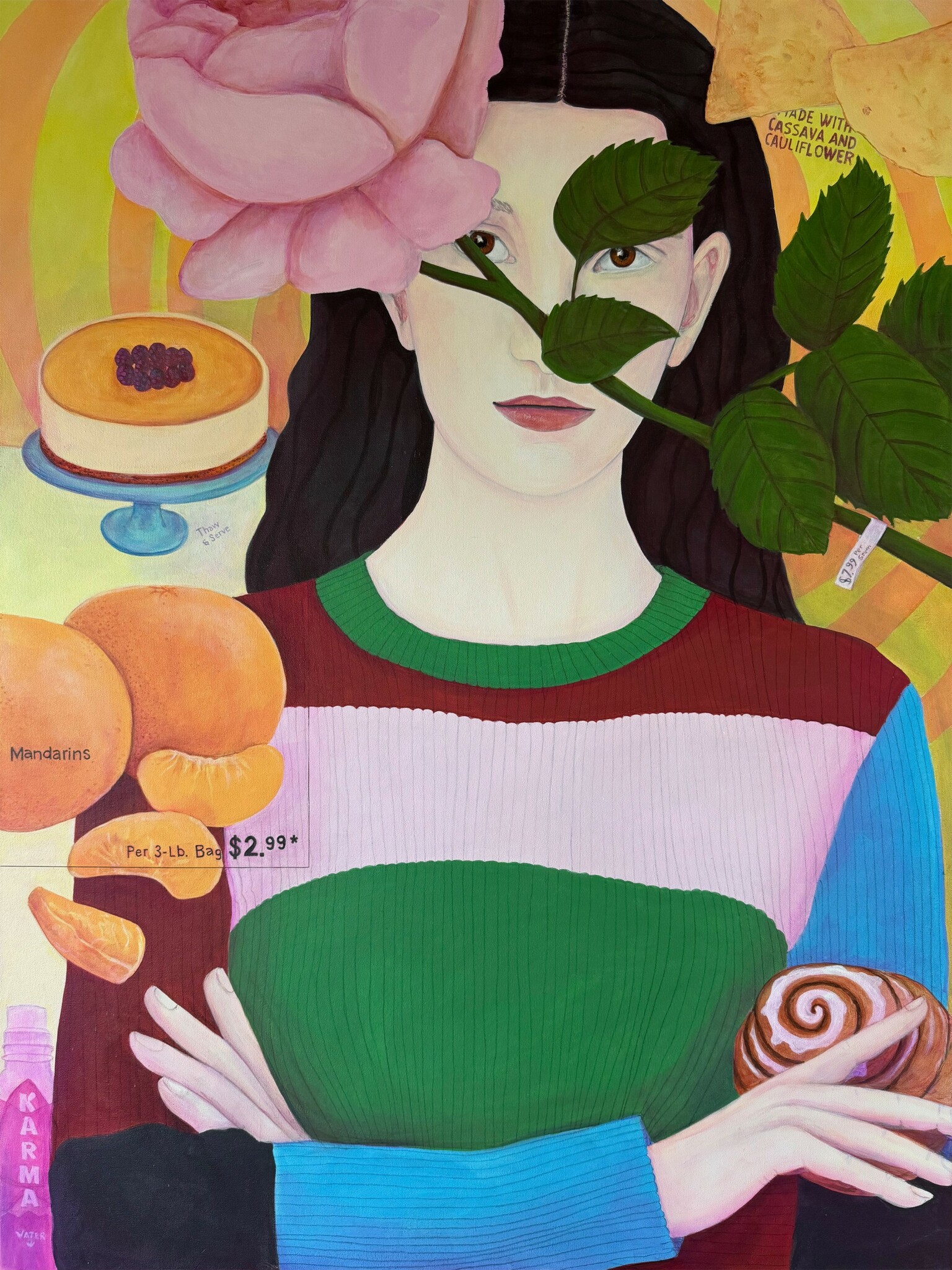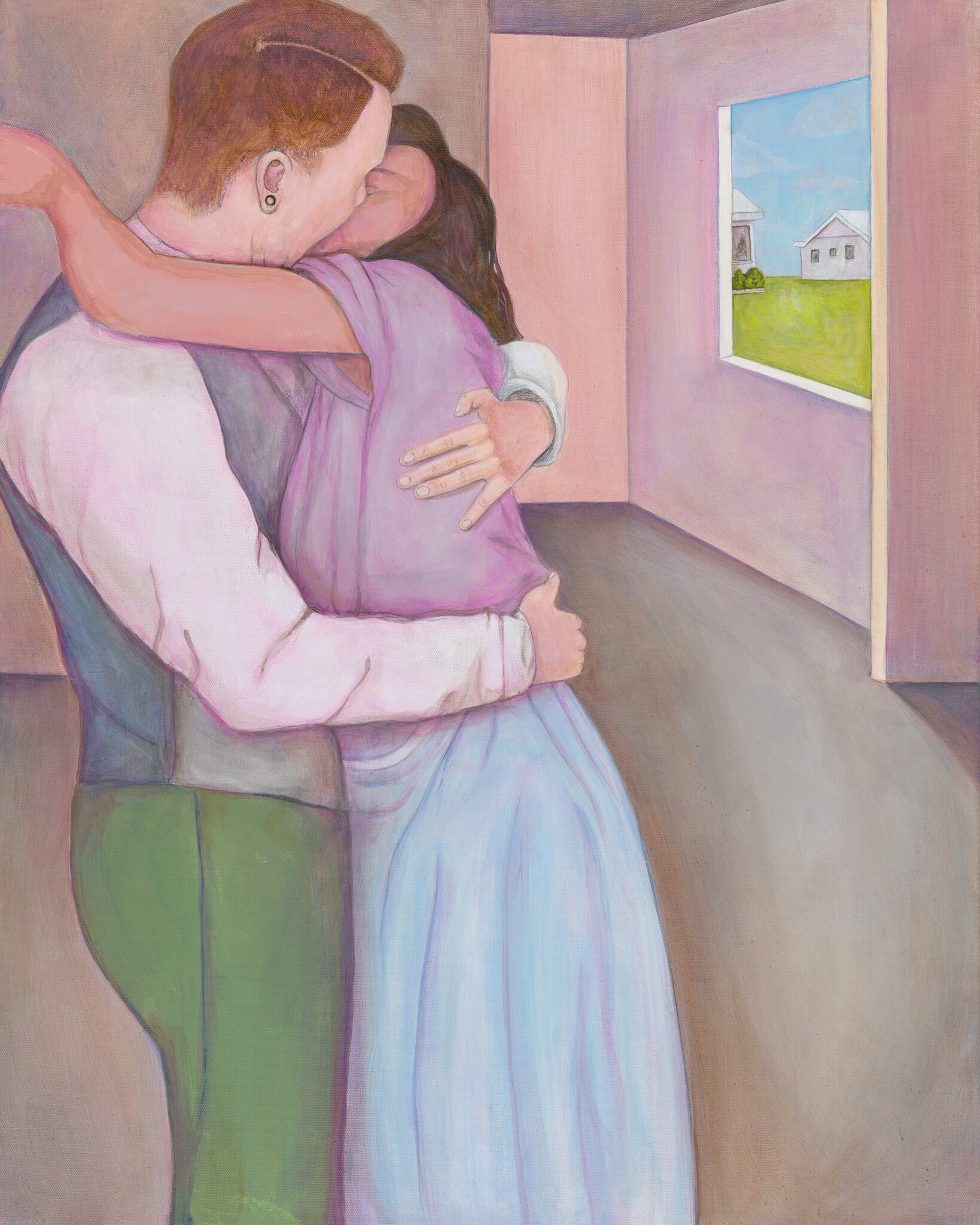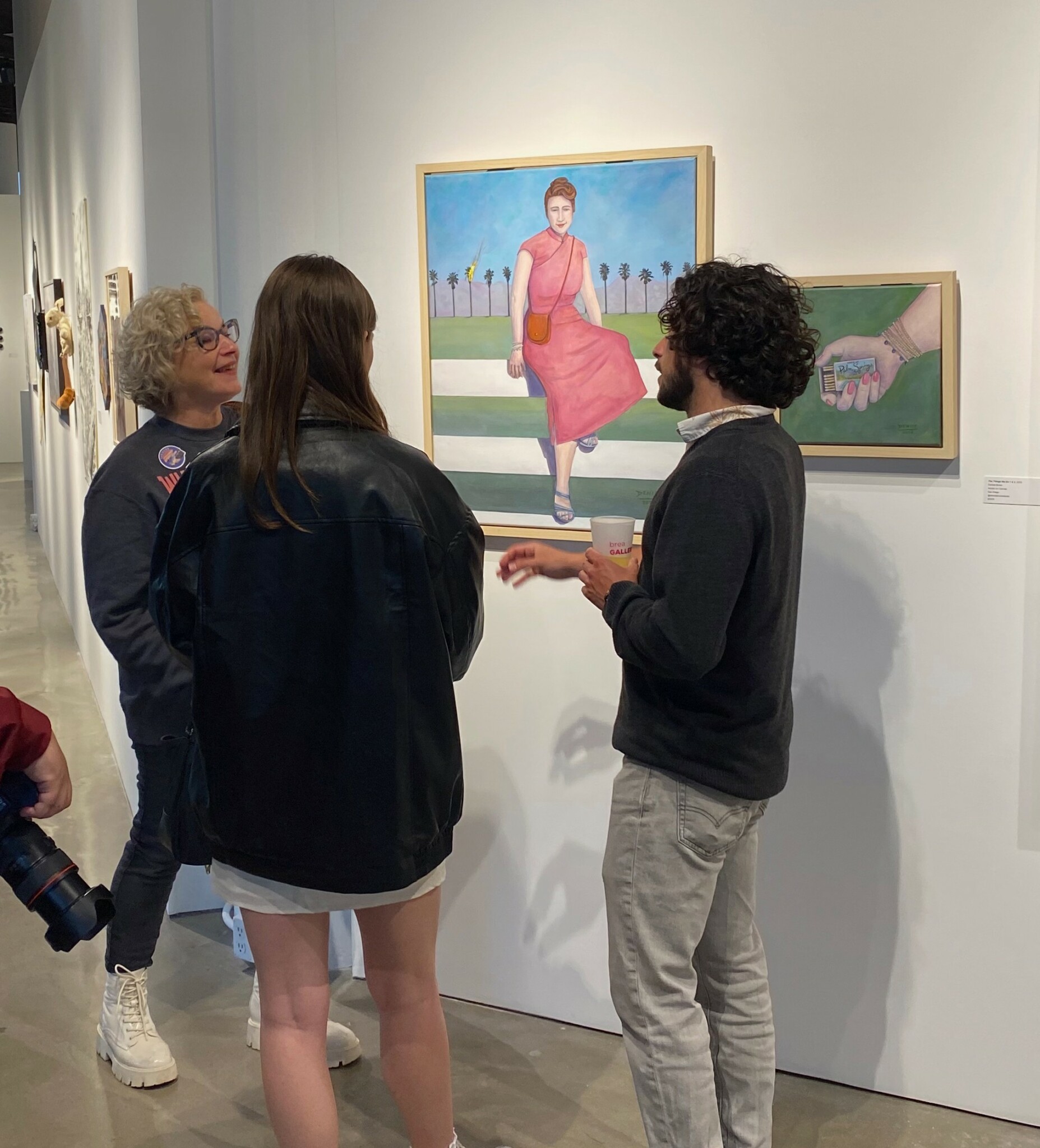We recently connected with Denise Brook and have shared our conversation below.
Denise, appreciate you joining us today. It’s always helpful to hear about times when someone’s had to take a risk – how did they think through the decision, why did they take the risk, and what ended up happening. We’d love to hear about a risk you’ve taken.
I lost my job unexpectedly three years ago. Jobs in my field—biotech advertising—were hard to come by (I was a Creative Director), and I was terrified. I was job hunting but getting nowhere.
Around that time, I had been watching Portrait Artist of the Year and remembered how much I loved doing charcoal portraits in college (my degree is in Fine Art). I started mucking around with a grid technique, and it all started coming back to me. From there, I moved on to my next love—acrylic painting—and began with small canvases.
As I painted, I listened to audiobooks and podcasts. I had just started Vincent Van Gogh: The Life by Steven Naifeh and Gregory White Smith—44 hours of in-depth Van Gogh. One of my biggest takeaways was just how prolific he was. My goal had always been to be a studio artist, but I gave it up for a more “normal” life (aka, not the starving “artist life”).
As my skills returned, so did my absolute love for painting. I took a deep breath and decided to stop looking for work (believe me, I wavered on this). I had a small savings and chose to commit to painting in the spirit of Van Gogh for a year. I set a goal of forty paintings—not quite Van Gogh’s 187, but still a challenge. I went back to living frugally (like in art school) and painted every day.
Over time, my paintings improved, and my messaging and direction became clearer. I was still working small, but I finished 38 paintings. The goal kept me going, and now, three years later, painting is a habit. I’ve also learned to pace myself—after that first year, I was pretty burned out. I took a couple of months off, and when I started again, I moved to larger canvases.
My goal is clear now: just keep painting. I’ve given up on returning to a corporate job and will happily live as frugally as needed to keep going. I go to sleep feeling completely fulfilled and excited about whatever I’m working on. I’m not selling much yet, but I’m confident success will come with time.

Denise, love having you share your insights with us. Before we ask you more questions, maybe you can take a moment to introduce yourself to our readers who might have missed our earlier conversations?
I have always known that I was a visual artist. As a child I knew it, and just kind of pursued it. I got my degree in Fine Art, and went on to try to create and sell my Fine Art. It was really hard, and I was pretty much the “starving artist” As time went on, I had a family, and decided to try to have a more “normal” life. I was lucky, I was able to go into graphic design, art direction, and finally creative direction in advertising. These are positions that allow creativity, while also providing a paycheck. I did this for twenty plus years, and it was hard. I was always doing some art on the side, but my creative well was pretty much tapped out. After I lost my job three years ago, I was ready to jump back in to another advertising job. I was really lucky to not have been able to find one.
In the last three years, me losing my job was minor in compared to world events. My painting is a way for me to talk about things that are important to me, or quite frankly, so disturbing that getting it out on canvas helps rid me of whatever angst I am feeling (at least for a moment). The reaction to my work has been overwhelming, and seems to resonate much more than I expected.
My paintings are gently surrealistic. They are figurative, and as I said, help me work out how I feel about what is going on in the world. I like to include the viewer, and I like to have them figure out what is going on in my paintings. I remain mute unless you ask me, and then, I will tell you. It seems cathartic for people to tell me what they see in my paintings, and I love the interaction.
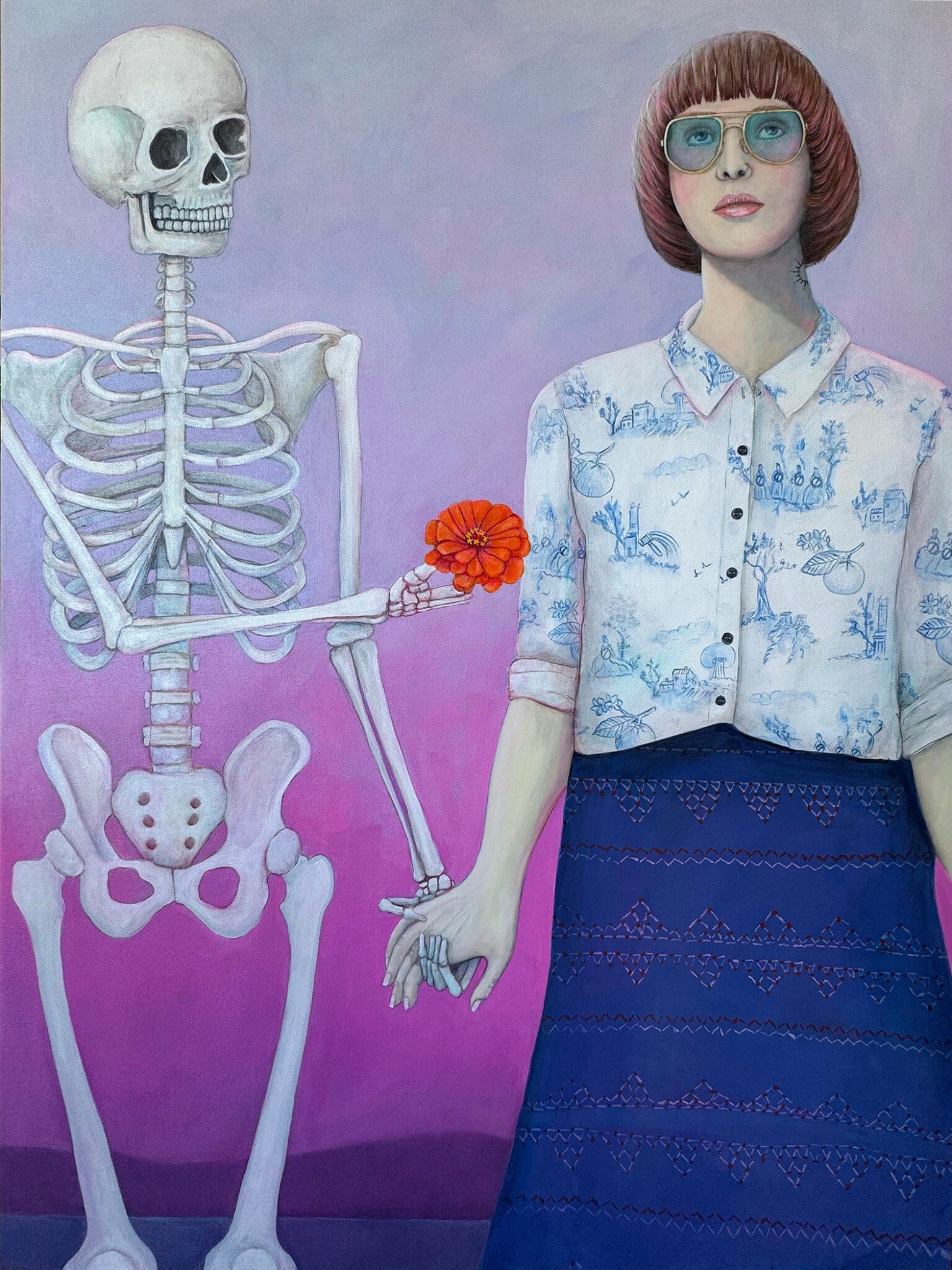
Learning and unlearning are both critical parts of growth – can you share a story of a time when you had to unlearn a lesson?
I had to unlearn the expectation of having “stuff” and being able to do “stuff.” I started out with very little and worked my way into fairly nice salaries. Advertising is hard, thankless, and cutthroat. To compensate, I bought things. I ate out at nice restaurants, splurged on shoes, purses, and designer glasses—all to make up for my extremely stressful job.
To do what I do now, I had to give all of that up. And I am unbelievably happy and fulfilled.
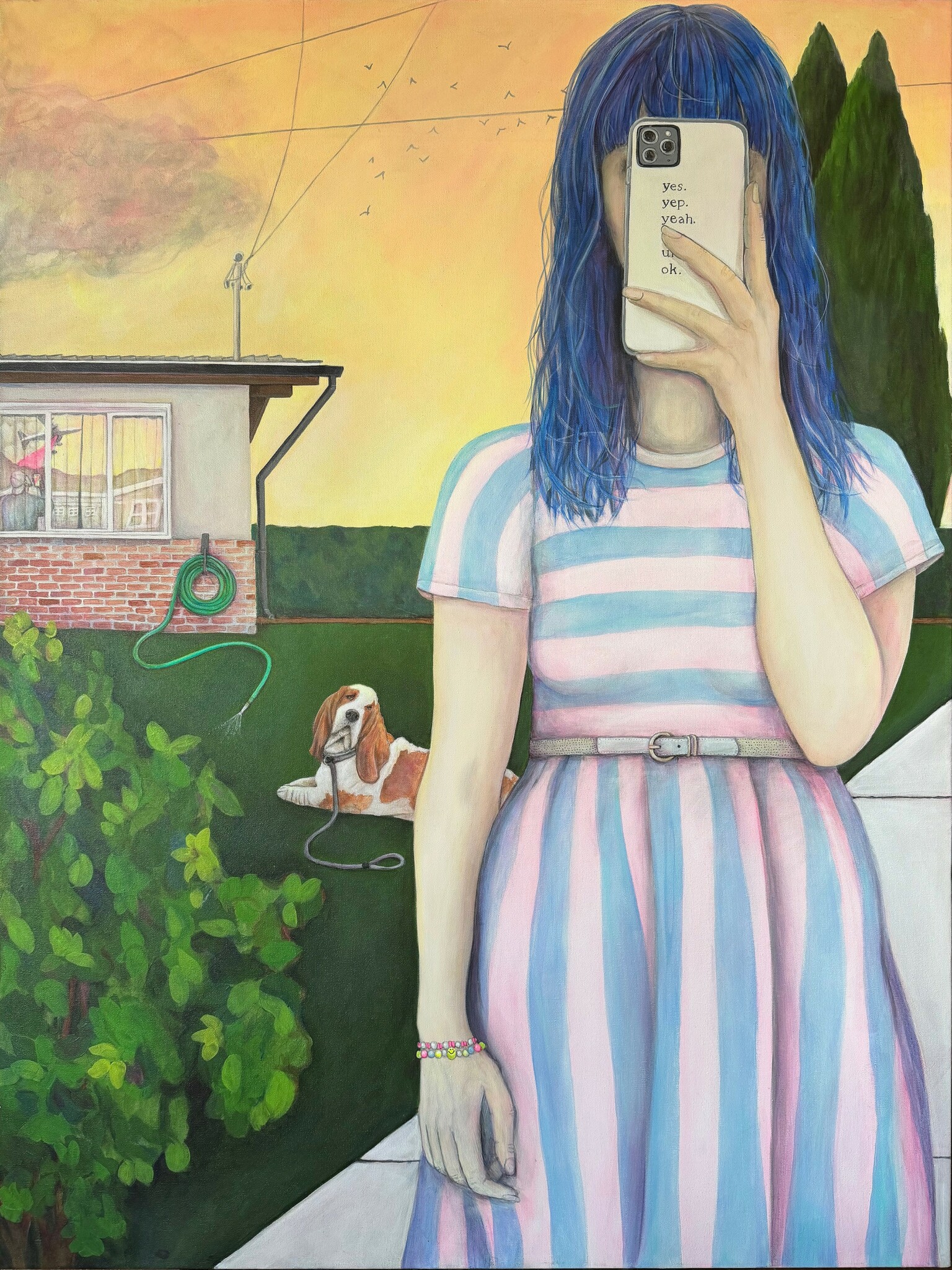
Have any books or other resources had a big impact on you?
The Steal Like an Artist Audio Trilogy by Austin Kleon. This is an amazing book. I listened to the audiobook every day while walking my dogs, then I would start at the beginning and listen to it again. It’s such a great confidence booster for fine artists just starting out.
Contact Info:
- Website: https://www.denisebrookstudio.com
- Instagram: @denisebrookstudio
